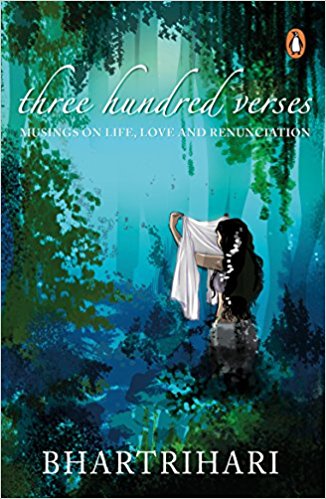The most lauded and quoted Sanskrit poet after Kalidasa, Bhartrihari’s genius and his continuing popularity lies in the fact that he speaks to the wholeness of human life. In his Three Hundred Verses (Shataka Trayam or Trishati), he identifies and addresses three universal human preoccupations in one hundred verses each—worldly pleasure, love and renunciation or, more accurately, detachment from the vicissitudes of the world. Bhartrihari’s sharp observations, his wit and humour, his ironic (some would say cynical) stance are all expressed in the most elegant language and so, he becomes a man for all seasons, as it were, speaking to his fellow poets as much as he does to lovers, mercenaries and renunciants.
The pleasure of reading Bhartrihari lies in the fact that he can be lovelorn, angry, petulant, wise, foolish, bitter and, every now and then, resigned.
Which well-born man will ever kiss/a harlot’s lips that, though charming,/are the cuspidors for spitting/by soldiers, gangsters, charlatans,/street performers, thieves and slaves? (p. 229)
A man with no wealth swiftly went/and to a corpse in the cemetery:/ ‘Get up, friend, bear for a moment,/this burden of poverty;/for I am tired, and want to have/the comfort you enjoy in death.’/But the corpse remained silent for it knew/it was better to be dead than poor (p. 422).

